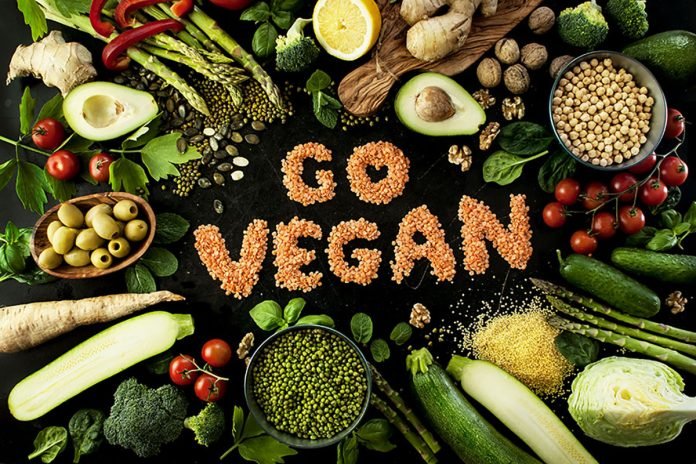Veganism is a lifestyle and dietary choice that involves the complete avoidance of animal products, including meat, dairy, eggs, and honey. Instead, vegans consume plant-based foods such as fruits, vegetables, whole grains, legumes, nuts, and seeds. Veganism has gained popularity in recent years due to concerns about animal welfare, environmental sustainability, and health benefits.
One of the most significant benefits of a vegan diet is its positive impact on health. Research shows that plant-based diets can reduce the risk of chronic diseases such as heart disease, diabetes, and cancer. A study conducted by the American Heart Association found that vegans had a 25% lower risk of heart disease compared to non-vegetarians. Another study published in the Journal of the Academy of Nutrition and Dietetics found that vegans had a lower risk of developing type 2 diabetes than non-vegans.
A vegan diet is also rich in fiber, which helps to promote digestive health and reduce the risk of constipation, diverticular disease, and colon cancer. Plant-based foods are also high in antioxidants, vitamins, and minerals that support overall health and wellbeing.
In addition to its health benefits, a vegan diet can also have a positive impact on the environment. Animal agriculture is a significant contributor to greenhouse gas emissions, water pollution, and deforestation. According to a report by the United Nations, animal agriculture is responsible for 14.5% of global greenhouse gas emissions, more than the entire transportation sector combined.
Moreover, animal agriculture is a major source of water pollution, with animal waste contaminating waterways and causing eutrophication, which can lead to oxygen depletion and the death of aquatic life. The production of animal feed also requires vast amounts of water, with one pound of beef requiring 1,800 gallons of water to produce.
The production of animal products also contributes to deforestation, as forests are cleared to create grazing land and to grow crops to feed animals. Deforestation is a major contributor to climate change, as trees absorb carbon dioxide and release oxygen.
By choosing a vegan diet, individuals can reduce their environmental impact and help to mitigate the effects of climate change. A study published in the journal Science found that a global shift towards a plant-based diet could reduce greenhouse gas emissions by up to 70%.
Aside from the environmental benefits of veganism, it is also a lifestyle that promotes animal welfare. By avoiding the consumption of animal products, vegans refuse to support industries that exploit and harm animals for human consumption.
It is worth noting that following a vegan diet requires careful planning to ensure that individuals consume adequate nutrients such as protein, iron, calcium, vitamin D, and vitamin B12, which are commonly found in animal products. Vegan diets may also require supplementation to ensure adequate nutrient intake. Consulting a registered dietitian or healthcare provider is recommended before transitioning to a vegan diet.
It is also worth mentioning that veganism is not just about dietary choices but also extends to other areas of life, including clothing, personal care, and household products. Veganism involves avoiding the use of animal-derived materials such as leather, wool, silk, and down, as well as products that are tested on animals.
In conclusion, veganism is a lifestyle choice that promotes health, environmental sustainability, and animal welfare. A vegan diet can offer numerous health benefits and reduce an individual’s environmental impact. However, it is essential to plan the diet carefully to ensure adequate nutrient intake. By choosing veganism, individuals can contribute to a more sustainable future for the planet and help to protect animal welfare.
20 Positive Affirmations for Vegan Lifestyle
- I am choosing a vegan lifestyle for my health and well-being.
- By being vegan, I am making a positive impact on the environment.
- I am proud to be contributing to the reduction of animal suffering.
- I am grateful for the abundance of delicious and nutritious plant-based foods available to me.
- I am committed to treating my body with the respect and care it deserves.
- Being vegan allows me to live in alignment with my values and beliefs.
- I am empowered to make conscious and ethical choices about what I eat and wear.
- Veganism is a powerful way to take a stand against the exploitation of animals.
- I am proud to be part of a growing movement of people who care about the planet and its inhabitants.
- By choosing veganism, I am reducing my carbon footprint and protecting the environment for future generations.
- I am grateful for the positive impact that veganism has on my mental and emotional well-being.
- Veganism allows me to be creative in the kitchen and explore new foods and flavors.
- I am grateful for the sense of community and support that comes from being part of the vegan community.
- Veganism is a way to connect with my inner self and live a more mindful and conscious life.
- I am grateful for the abundance of health benefits that come with a vegan lifestyle, including improved digestion, increased energy, and better sleep.
- Veganism is a way to show compassion for all living beings and live in harmony with the natural world.
- By being vegan, I am setting a positive example for others and inspiring them to make positive changes in their own lives.
- I am grateful for the sense of purpose and meaning that comes from being part of a movement that is making a positive difference in the world.
- Being vegan allows me to live a life of integrity and authenticity.
- I am proud to be part of a compassionate and forward-thinking community that is creating a better world for all.
References:
- American Heart Association. Vegetarian, Vegan Diets and Multiple Health Outcomes: A Systematic Review with Meta-Analysis of Observational Studies. 2021.
- Kahleova H, et al. Type 2 diabetes mellitus: a review of current trends. Journal of the Academy of Nutrition and Dietetics. 2019.
- Tilman D, Clark M. Global diets link environmental sustainability and human health. Nature. 2014.
- United Nations. Livestock’s Long Shadow: Environmental Issues and Options. 2006.
- Pimentel D, Pimentel M. Sustainability of meat-based and plant-based diets and the environment. American Journal of Clinical Nutrition. 2003.
- Sabaté J, Soret S. Sustainability of plant-based diets: back to the future. American Journal of Clinical Nutrition. 2014.
- Scarborough P, et al. Dietary greenhouse gas emissions of meat-eaters, fish-eaters, vegetarians, and vegans in the UK. Climatic Change. 2014.
- Springmann M, et al. Options for keeping the food system within environmental limits. Nature. 2018.
- Craig WJ, Mangels AR. Position of the American Dietetic Association: Vegetarian Diets. Journal of the American Dietetic Association. 2009.
- Melina V, et al. Position of the Academy of Nutrition and Dietetics: Vegetarian Diets. Journal of the Academy of Nutrition and Dietetics. 2016.
- Reed M, et al. Meeting the UK population’s nutrient requirements on a vegan diet. British Journal of Nutrition. 2021.
- Sanders TA. DHA status of vegetarians. Prostaglandins, Leukotrienes and Essential Fatty Acids. 2009.
- Mangels R, Messina V. Considerations in planning vegan diets: Infants. Journal of the American Dietetic Association. 2001.



